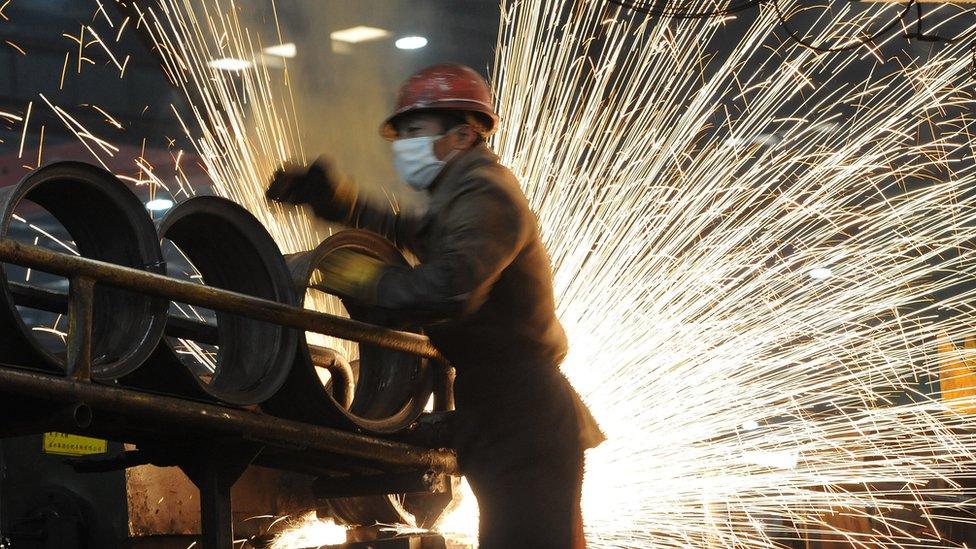China PM predicts 'battle' for growth as target cut
- Published
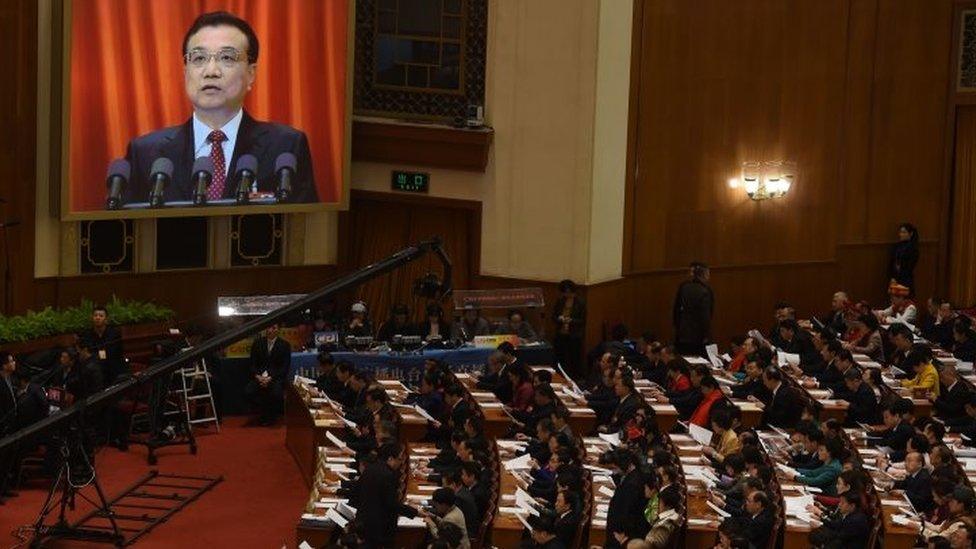
Premier Li Keqiang said "China will face more and tougher problems and challenges" in 2016
China's National People's Congress has set the country's growth target for 2016 at a lower range of 6.5%-7%.
Premier Li Keqiang made the announcement in his opening speech, warning of a "difficult battle" ahead.
The annual meeting in Beijing sets out to determine both the economic and political agenda for the country.
It comes at a time when China struggles with slowing economic growth and a shift away from overreliance on manufacturing and heavy industry.
The congress is also expected to approve a new five-year plan, a legacy of the communist command economy.
Economic woes
"China will face more and tougher problems and challenges in its development this year, so we must be fully prepared to fight a difficult battle," Mr Li told delegates on Saturday.
Last year, China's goal was "about 7%". The economy actually grew by 6.9% - the lowest expansion in 25 years.
Mr Li also said that China was targeting consumer inflation at "around 3%" and unemployment "within 4.5%".
Meanwhile, the country's defence spending will be raised by 7.6%, the state-run Xinhua news agency reports, citing a budget report.
China's congress is a highly choreographed, largely rubber stamp affair, but Premier Li's opening address can at least be gleaned for clues about the overall direction of policy, the BBC's John Sudworth in Beijing reports.
There was plenty of talk about "painful rebalancing", the need to reform inefficient state owned enterprises and to cut overcapacity - but for many, this speech will look a lot like business as usual: a commitment to growth at all costs, our correspondent adds.

Analysis: Karishma Vaswani, BBC Asia business correspondent
As expected, China released an economic growth target at the opening session of the NPC.
But this was the first time we saw a range set instead of a hard and fast number. A recognition that China's growth may slip below the 6.9% recorded last year, yes, but economists have long said that a growth range may indicate a more accommodating stance towards much-needed structural reforms.
Why does this matter to the rest of us? Well, China is now the world's second largest economy and has been a massive consumer of a lot of the stuff Asian businesses are selling. So while a slowdown will inevitably impact Asia in the short term, it'll be more important to see whether China's growth, slowing or not, will transition to a more sustainable path.

This year's congress is overshadowed by the current economic strains as China experiences slowing economic growth and extreme volatility in stock markets.
The BBC's world affairs editor John Simpson reports from Beijing.
The stock market slump had seen indexes lose more than 30% of their value in 2015 and led to large-scale government intervention of limited success.
Beijing has also been accused of guiding the yuan currency lower to boost the competitiveness of Chinese exports on the global market.
A slew of weak economic data has recently added to the concerns and US ratings agency Moody's has downgraded its outlook for China from "stable" to "negative".
Social tensions
There also is concern over rising unemployment as Beijing seeks to gradually shift its economy from overdependence on manufacturing and industry towards more services and consumer spending.
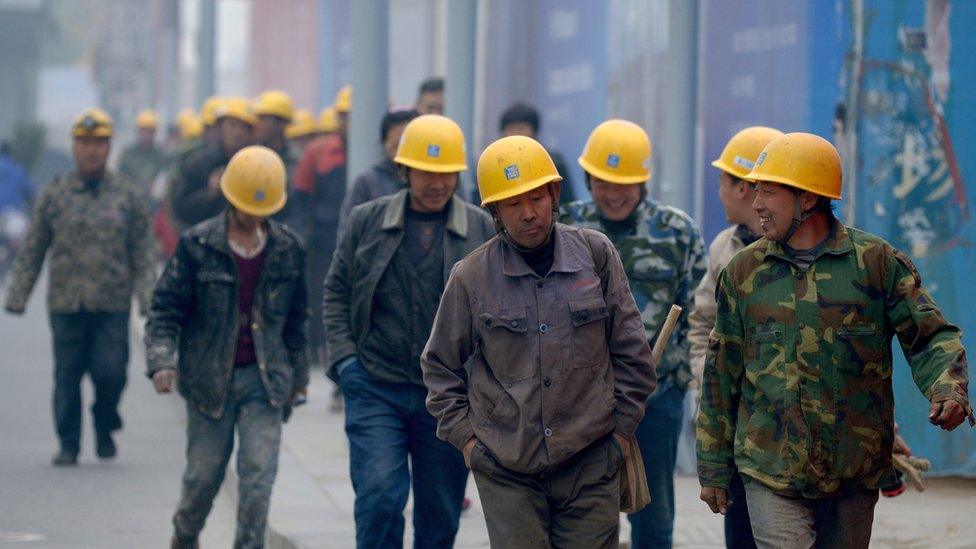
Heading off to new jobs in the service industry?
A government official said earlier this week that 1.8 million workers were expected to be laid off in the steel and coal industries.
With Beijing keen to prevent social unrest, the government has tightened its grip on dissenters and government critics.
In their latest move, authorities have blocked the account of a prominent critic and cracked down on Hong Kong booksellers publishing books critical of China's leaders.
President Xi Jinping recently went on a well-publicised tour of the main Communist Party newspaper, the state news agency, and state television, demanding absolute loyalty to the party and its leadership in thought, politics and action.

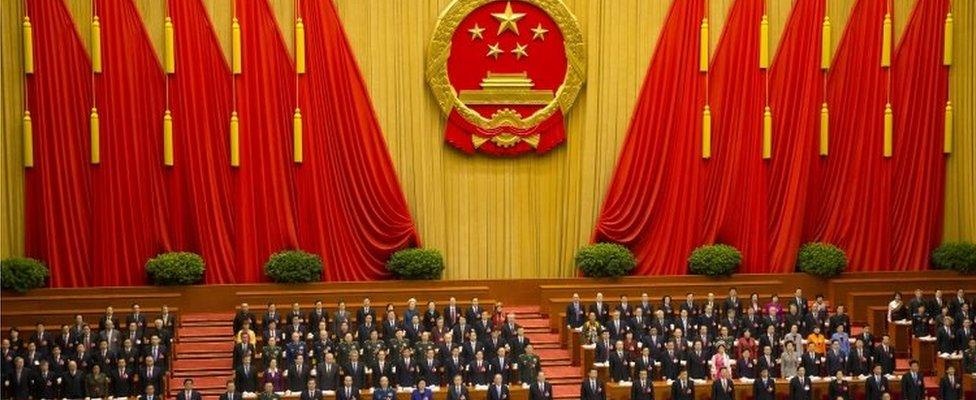
What is the National People's Congress?
Under China's 1982 constitution, the most powerful organ of state is meant to be the National People's Congress, China's parliament. Critics argue though that it is little more than a rubber stamp for party decisions.
The congress is made up of nearly 3,000 delegates elected by China's provinces, autonomous regions, municipalities and the armed forces. Delegates hold office for five years, and the full congress is convened for one session each year.
This sporadic and unwieldy nature means that real influence lies within a standing committee of about 150 members elected from congress delegates. It meets every couple of months.
In theory, the congress has the powers to change the constitution and make laws. But it is not seen as an independent body in the Western sense of a parliament.

- Published4 March 2016
- Published3 March 2016
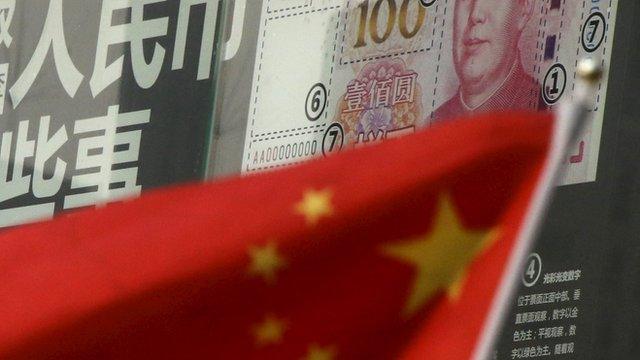
- Published3 March 2016
- Published2 March 2016
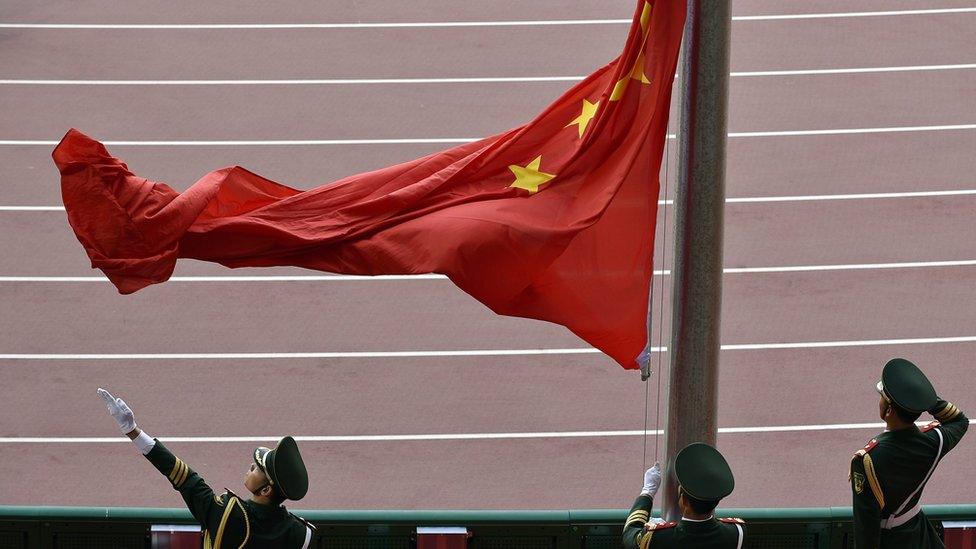
- Published1 March 2016
